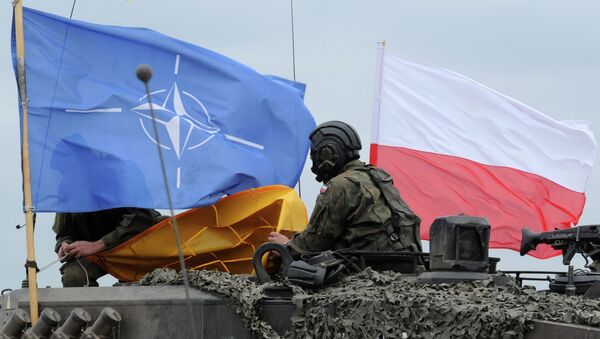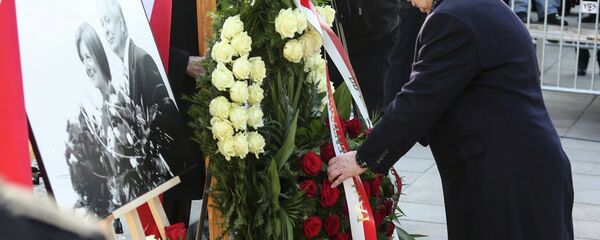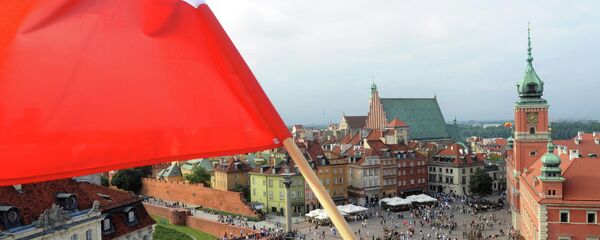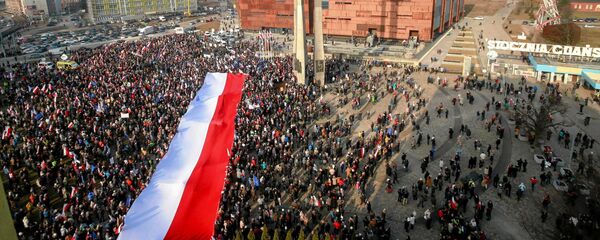Last Friday, a senior White House official told reporters that the president has "certainly been concerned" with developments in Poland, where a standoff between the right-wing Law & Justice Party government and the country's Constitutional Court has met with seething criticism from the Venice Commission, a legal body of the Council of Europe. The White House, the official noted, is worried about the "steps the [Polish] government has taken that may be inconsistent with liberal democratic norms."
And while the Obama administration backtracked from its criticism almost in the same breath, serious damage to the 'special relationship' between Washington and Warsaw appears to have been done, the European edition of Politico suggests.
While voicing the administration's concerns, the White House official softened the critique, noting that "the new Polish government is still fairly young and finding its way forward, so we want to see how they respond to the report of the Venice Commission."
And respond they did: Over the weekend, the Polish government reiterated that it would not abide by the Venice Commission's recommendations, noting that it "could not publish the decisions of some Constitutional Tribunal judges that are not based on law" (without publishing the verdict, it will be impossible to enforce it).
As for the US's concerns, Polish officials have decided to stand firm in making clear exactly how little Washington's opinion means to them in this case.
Over the weekend, speaking at a security conference commemorating the anniversary of Poland's accession to NATO, Defense Minister Witold Waszczykowski, well known for his outspoken commentary, effectively said that the US has no right to lecture Poland on its democracy.
"People who were only building their country in the 18th century are telling us what democracy is – a nation that already had structures of representative democracy in the 13th and 14th centuries," Waszczykowski said.
At the same time, the minister noted that Poland "demand[s] equal treatment through gaining not only political but also military guarantees before any threat that could face us."
Speaking to the newspaper, Heather Conley, a former Bush administration deputy assistant secretary of state for European and Eurasian Affairs, suggested that the situation in Poland may give the White House cause to scale back bilateral engagement with Poland, "and not give the Polish government a lot of meeting time bilaterally" at the upcoming NATO summit in July.
"That's already happening with the nuclear security summit in Washington on March 31," Politico added. "Polish President Andrzej Duda is attending, but despite efforts on the Polish side, the US has not said if there will be a one-on-one meeting between him and Obama."
"It could turn out that additional defense measures do come to the region, but that they don't come to Poland," he told the paper. "Polish history is really pretty definite. We're either in some sort of a union, or else Russian troops are stationed in Poland," he added.
And while it may be absurd, in the 21st century, to suggest that a more independent Polish position would inevitably lead to Russian occupation, it is interesting to ponder how far the rift between Warsaw and its Western partners has to go before the government reconsiders its 'special relationship' with the US, the EU, and NATO itself.






